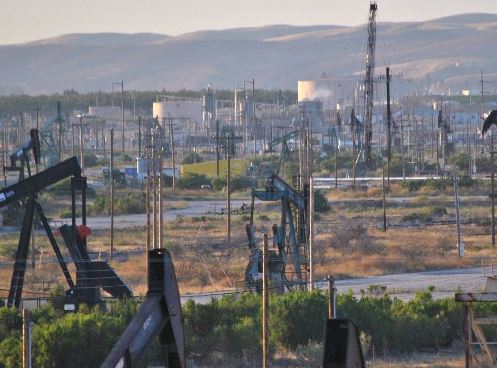London: Car factories idled, beer stopped flowing, cargo ships dropped port calls, and energy companies cut their pipelines.
Russia’s invasion of Ukraine has thrown business plans into disarray and forced a growing number of the world’s best-known brands — from Apple to Mercedes-Benz and BP — to pull out of a country that’s become a global outcast as companies seek to maintain their reputations and live up to corporate responsibility standards.
They’re also expressing concern about the plight of Ukrainians, showing how they want to be seen coming out on the right side of history.
Complicating companies’ push to flee is an order from Moscow temporarily restricting foreign investors from selling Russian assets.
Prime Minister Mikhail Mishustin said Tuesday that it would help investors make “a considered decision” rather than succumb to the political pressure of sanctions.
It’s not clear how that may affect corporate efforts to exit Russia.
Oil and gas companies, already feeling the heat from climate activists to invest in renewable energy, were among the companies that announced the most rapid and dramatic exits.
Energy firm BP said Sunday that it would abandon its $14 billion stake in Russian state-owned oil and gas company Rosneft. The next day, Shell said it was leaving its joint venture with state-owned Gazprom and its involvement in the now-suspended Nord Stream 2 pipeline built to carry natural gas to Western Europe.
ExxonMobil said it will pull out of a key oil and gas project and halt any new investment in Russia. All their chief executives said they were shocked and saddened by the increasingly bloody conflict. Smaller energy firms have followed suit.
Companies in other industries, including automakers, signalled they’re staying out of the Russian market either out of concern for Ukraine or to comply with Western sanctions.
Toyota is halting production at its St. Petersburg plant that makes RAV4 and Camry models starting Friday because of supply chain disruptions, saying it was watching events “with great concern for the safety of the people of Ukraine.”
Mercedes-Benz suspended vehicle exports to Russia and manufacturing there. Volkswagen Group, which also owns Porsche and Audi, did the same, saying it believes a “sustainable solution to the conflict can only be found on the basis of international law.”
Volvo Cars said it stopped deliveries because of “potential risks associated with trading material with Russia,” citing Western sanctions. Ford suspended operations.
Harley-Davidson halted motorcycle shipments to Russia, saying its thoughts “continue for the safety of the people of Ukraine.” Putin famously rode a three-wheeled Harley on a visit to Ukraine in 2010.
Others with more at stake in Russia might find it harder to navigate the crisis.
French automaker Renault, whose second-biggest market is Russia, said only that it’s temporarily suspending production at its Moscow plant through Saturday “due to some logistics issues,” without being more specific.
Danish brewery group Carlsberg said last week that it suspended production at two breweries in Ukraine and that it’s “following the situation with great concern” but didn’t comment on its extensive Russian operations, including St. Petersburg-based Baltika Breweries, which exports worldwide.
Czech brewer Budvar, which counts Russia as one of its five major markets, halted beer deliveries to the country, saying business is not the top priority and that it’s looking for ways to help, including finding accommodations for Ukrainian refugees.
Ikea suspended Russian operations and paused Russian exports and imports, along with neighbouring ally Belarus. The Swedish home furnishings giant said, “The war has had a huge human impact” and resulted “in serious disruptions to supply chain and trading conditions.”
Fast fashion brand H&M paused sales in Russian stores, expressing concern about the “tragic developments.” Nike said on its Russian website it can’t guarantee deliveries.
The world’s biggest shipping company, A.P. Moller-Maersk, will stop making Russian port calls.
Airplane makers Boeing and Airbus stopped supplying parts and service support for Russian carriers. Boeing suspended major operations in Moscow and temporarily closed its Kyiv office.
Even Hollywood studios are delaying the release of new films in Russia, which isn’t a leading movie market but typically ranks in the top dozen countries for box office revenue. Warner Bros., the Walt Disney Co. And Sony Pictures cited the “humanitarian crisis.”
Tech companies also headed for the door.
Apple said it would stop selling its iPhone and other popular devices inside Russia, while computer maker Dell Technologies “suspended” sales in both Ukraine and Russia.
Google and TikTok blocked Russian state media channels from their platforms after a plea from the European Union. Apple blocked RT News and Sputnik News downloads from its App Store outside Russia.
Some companies went beyond halting deliveries or operations.
Lego, Ford and Volkswagen Group said they would make millions of dollars in charitable donations to support Ukrainian refugees.
AP
